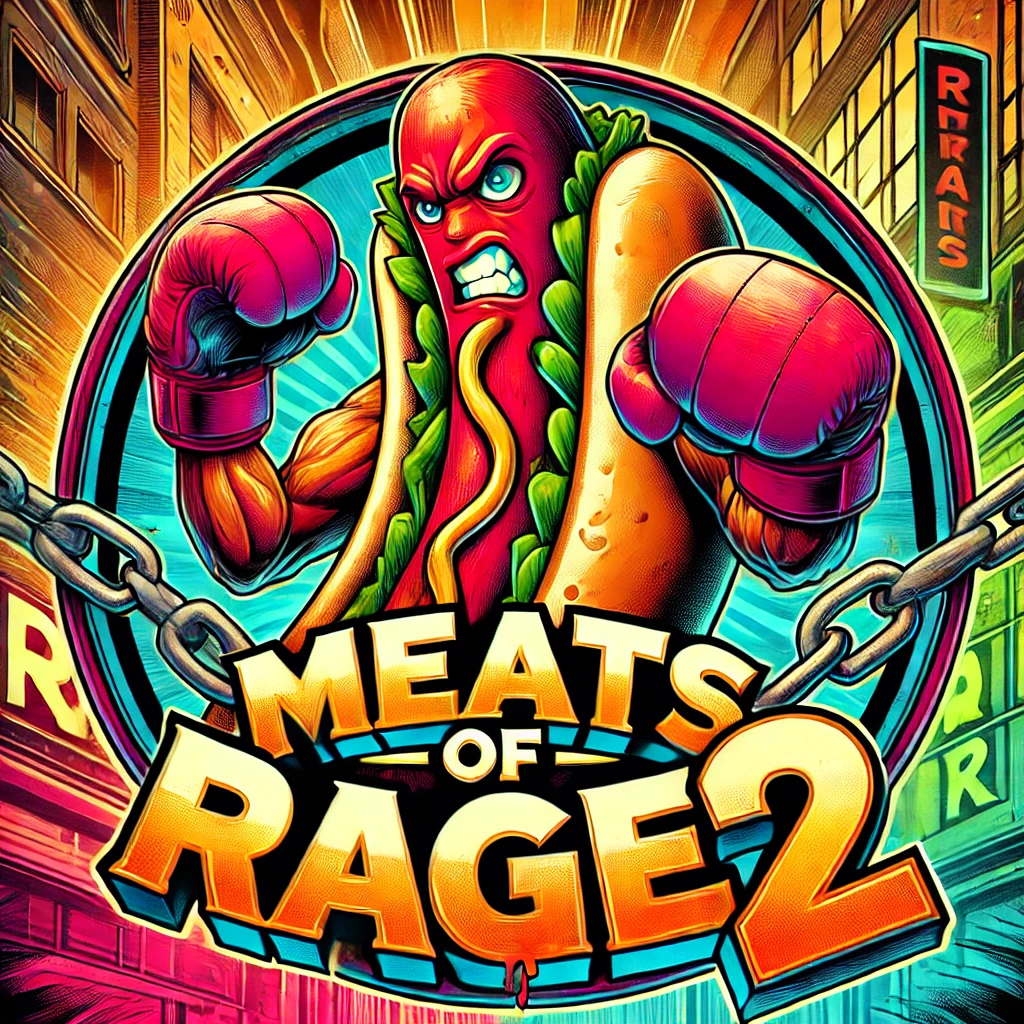A lot of people threaten to leave Twitter. Not many of them have actually done it.
This was true even before Elon Musk’s purchase of the platform a year ago. But the parade of calamities since — cutting back on moderation, unplugging servers, reinstating banned accounts, replacing verified check marks with paid subscription badges, throttling access to news sites, blaming the Anti-Defamation League for a decline in advertising — has made stepping away more appealing, either because the timeline is toxic or because the site simply doesn’t function the way it used to.
Last April, the company gave NPR a reason to quit — it labeled the network “U.S. state-affiliated media,” a designation that was at odds with Twitter’s own definition of the term. NPR stopped posting from its account on April 4. A week later, it posted its last update — a series of tweets directing users to NPR’s newsletters, app, and other social media accounts. Many member stations across the country, including KUOW in Seattle, LAist in Los Angeles, and Minnesota Public Radio, followed suit.
Six months later, we can see that the effects of leaving Twitter have been negligible. A memo circulated to NPR staff says traffic has dropped by only a single percentage point as a result of leaving Twitter, now officially renamed X, though traffic from the platform was small already and accounted for just under two percent of traffic before the posting stopped. (NPR declined an interview request but shared the memo and other information). While NPR’s main account had 8.7 million followers and the politics account had just under three million, “the platform’s algorithm updates made it increasingly challenging to reach active users; you often saw a near-immediate drop-off in engagement after tweeting and users rarely left the platform,” the memo says.
There’s one view of these numbers that confirms what many of us in news have long suspected — that Twitter wasn’t worth the effort, at least in terms of traffic. “It made up so little of our web traffic, such a marginal amount,” says Gabe Rosenberg, audience editor for KCUR in Kansas City, which stopped posting to Twitter at the same time as NPR. But Twitter wasn’t just about clicks. Posting was table stakes for building reputation and credibility, either as a news outlet or as an individual journalist. To be on Twitter was to be part of a conversation, and that conversation could inform stories or supply sources. During protests, especially, Twitter was an indispensable tool for following organizers and on-the-ground developments, as well as for communicating to the wider public. This kind of connection is hard to give up, but it’s not impossible to replace.
The week after NPR and KCUR left Twitter, the Ralph Yarl shooting happened in Kansas City. Rosenberg says it was “painful” to stay off Twitter as the story unfolded. “We had just taken away one of our big avenues for getting out information, especially in a breaking news situation — a shooting, one that deals with a lot of really thorny issues of racism and police and the justice system. And a lot of that conversation was happening on Twitter,” Rosenberg says. Instead of rejoining Twitter, KCUR set up a live blog and focused on posting to other social networks. NPR’s editors worked with the station to refine SEO and help spread the story. Even though the station itself wasn’t posting to Twitter, Rosenberg says the story found an audience anyway because very engaged local Twitter users shared the piece with their networks. And while the station informed these users through its website, it also reached new users on Instagram, where Rosenberg says KCUR has “tripled down” its engagement efforts.
On Instagram, KCUR’s strategy is less about driving clicks and more about sharing information within the app. “Instagram doesn’t drive traffic, but frankly neither did Twitter,” Rosenberg says. NPR, meanwhile, has been experimenting with Threads, a new app built by Instagram that launched in July, where NPR is among the most-followed news accounts. Threads delivers about 63,000 site visits a week — about 39 percent of what Twitter provided. But NPR’s memo notes that clicks aren’t necessarily the priority, and the network is “taking advantage of the expanded character limit to deliver news natively on-platform to grow audiences — with enough information for a reader to choose whether to click through.”
NPR posts less to Threads than it did to Twitter, and the team spends about half as much time on the new platform as it did on the old. Danielle Nett, an editor with NPR’s engagement team, writes in the staff memo that spending less time on Twitter has helped with staff burnout. “That’s both due to the lower manual lift — and because the audience on Threads is seemingly more welcoming to publishers than on platforms like Twitter and Reddit, where snark and contrarianism reign,” Nett writes.
These strategies move publishers further away from seeing social media as a source of clicks. This could be a risky pivot away from traffic sources, given that NPR and many member stations have laid off staff or made other cuts due to declining revenues. But the social media clickthrough audience has never been guaranteed; a Facebook algorithm change this year also tanked traffic to news sites. Instead, recognizing that social media is not a key to clicks seems like a correction to years of chasing traffic through outside platforms.
There were signs of social media’s waning importance before the Twitter sale as well as predictions that the era of social media-driven news is coming to an end. But changes to X in the last year have only accelerated these trends, underlining that social media is less rewarding to publishers and less fun for users than it used to be. “The quality of our engagement on the platform was also suffering” before April, Nett wrote in a followup email. “We were on average seeing fewer impressions and smaller reach on our tweets, despite keeping a similar publishing cadence. And I know this is anecdotal, but as someone looking at the account every day, spam replies were getting much more frequent — starting to overpower meaningful feedback and conversation from audiences.” Musk’s now-retracted relabeling of NPR could be seen as a last straw, or as an open door to leave a platform that had lost its utility.
By many estimates, active daily users on Twitter/X are in decline. Not everyone who leaves does it like NPR, in a flurry of headlines and with a final post pinned to their timeline. Instead, it’s more mundane. They check less and less often, finding it less useful, less compelling. It’s not easy to decide to back away; there’s still a fear about leaving — a fear of missing out on a great conversation or a new joke. But as a platform becomes less reliable — either editorially or technically — staying becomes more fraught. And as NPR has demonstrated, you may not be giving up all that much if you walk away.
I cannot understand why news organizations and large companies wouldn’t want to run official communication through Mastodon. I understand the network effect but allowing your employees to create a Twitter account is a bit like letting them officially do business with their personal AOL email account. I don’t think Mastodon is even close to perfect but it gives the publisher a huge amount of control.
I don’t understand why they can’t jusy write on their website or publish an email newsletter or RSS feed. Why do we need anything like Twitter for organizations?
NPR does maintain a number of good RSS feeds ( https://feeds.npr.org/ ), which are being simulcasted onto Mastodon by press.coop. They are doing this for a ton of news organizations: https://press.coop/directory
Cause people actually use twitter.
No they don’t.
NPR does that, actually. Their newsletters are the only ones in my inbox that I actually read.
Because people want to interact with it, leave a comment. It’s not nearly as satisfying to yell at cloud, it is as effective tho.
…And they can capitalize on that interaction.
They can’t admit that there’s something other than for profit ventures which are functional
Be careful what you wish for.
Corporations want to control every aspect of their image and maximize profit. Were they to move to Mastodon there are going to be consequences that could reshape how Mastodon and the Fediverse operate. Maybe there would still be independent instances, but profitability could drive corporate instances that would greatly overshadow private ones and/or even change the way the whole thing works so it’s much more difficult or expensive to be part of the system. That’s what corporations do - control the system, maximize profits by charging to participate in as many aspects of their system as possible, buy up competitors and if that doesn’t work they crush them.
What are you even talking about?
A companies instance is used for two things. Having employee accounts associated with them officially and for making their own posts.
If they make spam they just get defederated. They have no power.
A corporate ran open instance is not what they are talking about.
Threads? Seriously? Have they learnt nothing?
I mean, it’s better than Twitter in the one key aspect they care about: it is run by someone who is somewhat reliable. Sure, we can rely on Zuck to be a data-hoarding, privacy-invading fuck, but he can also be relied on to not insert his personal beliefs too deeply into his products.
They should join mastodon like BBC did
Ah, but unlike NPR the BBC didn’t switch wholesale to Mastodon. They created a Mastodon server in addition to their traditional social media accounts.
Actually building infra is a larger commitment.
True, but having that alongside their traditional social media alleviates the risk of not having effective social media should Mastodon, Lemmy or other Fediverse instances not pan out.
Just be careful w your wording, before “instance” loses its specific meaning in the fediverse.
And get all those dozens of users reach! I like it here, but let’s not pretend we’re mainstream lol
I’m a n00b here, but it’s livelier than I expected.
It’s not as lively as Reddit, though I’m pretty sure we’ll get there.
This is Lemmy, mastodon is much more popular than lemmy.
You’re on lemmy.world, both our instances are federated with Mastadon.
It’s an experience. They said they would review it after 6 months.
https://www.wired.com/2016/11/facebook-won-trump-election-not-just-fake-news/
The problem with social media as an industry is not that they lack reliability. It’s that they make money out of fucking things up. I think the amount of which Threads is better than Twitter is a rounding error.
I mean, yes, but NPR’s problem specifically with Elon’s Twitter is that, rather than miscreants using social media as a tool to get this done, Elon is doing it himself to the social media he owns using every disposable method. Zuck, at the very worst, at least takes an invisible hand approach and does his stuff much less on a whim.
NPR would be an ideal subject to do self-hosted federated platforms. They’d have total control of moderating in their own communities, but people could access the content from elsewhere. And it sort of lends itself to the idea of public information and discourse.
However, Mastodon and Lemmy do not have the reach they desire. Too bad. Nothing we can do except grow these platforms and hope that it takes, enough to attract the attention of the likes of NPR.
Mastodon and Lemmy don’t have a great reach so entities like NPR don’t contribute, and entities like NPR don’t contribute, so these platforms won’t have as great of a reach.
At a certain point, “Doing the right thing” should become an important factor.
We can say the same about Reddit too. Less and less use, same way as Digg and slowly it will fade into unimportance.
I had the classic power mad mod taking their bad day out on me moment a week or so ago and basically haven’t been back.
That’s been happening with power-tripping mods here on Lemmy, it’s not just a Reddit issue.
In Digg’s case it was waning until v5 when it fully collapsed under the weight of ineptitude.
Yea Digg and Reddit aren’t really comparable for a number of reasons. Digg changed their entire website overnight into something that was fundamentally different to what it was. Reddit on the other hand looks and feels pretty much the same as it has for years. Anecdotally, most people I know in my life who use Reddit aren’t even aware of anything going on.
Additionally Reddit has something that Digg was never able to achieve, a huge presence over Google search results. Even if Reddit locked down completely today like some kind of read-only site it would still continue to get a ton of traffic for this reason alone.
You people keep talking about Twitter as if it wasn’t just a media industry circlejerk.
Twitter has been an advertising platform first, social network second for a very long time now.
I started following them on Instagram once they dropped of X
I’m Canadian and that see you next Tuesday Zuck has blocked all news to us on his platforms. I tried to post a NYT recipe link the other day and that was blocked.
So I started using Firefish and only reading it in the fediverse. Amazing.
Sounds like Zuck actually did you and the rest of the country a favor. Getting news on social media is how we got this deep into the mess we’re in.
Maybe. But it annoys me I can’t post interesting non political articles which I did often.
I presume you know the specifics of why those blocks are in place? It’s because of a bill attempting to force them to pay for news posted there. You’d think the Canadians would have learned from the Aussies who tried similar, but no.
https://www.washingtonpost.com/world/2023/06/22/facebook-meta-canada-bill-c18/
Yes of course. I’m glad the government is standing up regardless of previous results.
I just began using Firefish and reading news that way. Federated news microblogging is a great way to read it.
How is that different than Mastadon?
It’s a much better designed app than Mastodon IMO, and you can read all of Mastodon from it, it’s just a really nice platform. It’s simply my preference and a better user experience.
Recruiting software?
No, it’s a great Twitter clone .
deleted by creator
Labelling NPR as state-affiliated media is pretty based though
Does based mean deliberately false?
Based on misunderstanding what NPR actually is.
deleted by creator
Shh You can’t say that here, this is a designated liberal propaganda zone. Mmm yes slava ukraini fellow libs!
Oh sick burn NPR now you have to find a new Democrat platform to shovel your state sponsored Democrat propaganda. Have fun with the website and newsletters.
NPR is, like, the center, to a fault lmao
?
I think you misunderstood the article
Wow looks like your generation only knows hate and blame
deleted by creator
NPR is state affiliated. I agree that twitter is a waste of time but Twitters actions weren’t off base
Elon isn’t going to notice you.
I’d hope not
How is it state affiliated?
Because Space Daddy said so
National Public Radio (NPR, stylized in all lowercase) is an American non-profit media organization … It differs from other non-profit membership media organizations such as the Associated Press, in that it was established by an act of Congress. https://en.wikipedia.org/wiki/NPR
NPR operates independently of any government or corporation, and has full control of its content.
I just said that:
A whole host of things are state-afilliated. That shouldn’t be conflated with ran by the state, or operated by the state, or controlled by the state, which is probably the concern.
https://lemmy.world/comment/4454636Twitter’s definition of state-affiliated:
How state-affiliated media accounts are defined
State-affiliated media is defined as outlets where the state exercises control over editorial content through financial resources, direct or indirect political pressures, and/or control over production and distribution. Accounts belonging to state-affiliated media entities, their editors-in-chief, and/or their prominent staff may be labeled. We will also add labels to posts that share links to state-affiliated media websites.
Conspiracy theories aside, AFAIK there’s no evidence that any level of the US government exercises control over NPR.
Well, I can’t speak for twitter, the owner is an idiot.
That’s the problem for me. If they are receiving any state funding they need to report facts as unbiased as possible
Because they’re a non-profit, their tax forms are publicly available. These forms are called 990s. This is why many people are responding as though they’re very annoyed with your perspective, because the evidence is free and public by law.
Exactly, I’m not making stuff up
The thing is you’re equivocating something potentially dangerous that you could easily look up instead.
lol calling them biased
They took a donation from the Koch brothers on agreement NPR kill a documentary about the Kochs which showed how terrible they are Downvotes because Billionaires would never do that, ok Redditors
lol lol lol fucking citation fucking needed mate
It was founded by Congress but is independent and funds itself. You know this but spread misinformation anyway.
NPR receives grants from the Corporation for Public Broadcasting.
According to CPB, in 2009 11.3% of the aggregate revenues of all public radio broadcasting stations were funded from federal sources, principally through CPB; in 2012 10.9% of the revenues for Public Radio came from federal sources.
Funding isn’t held hostage for the purpose of controlling content or anything like that, but NPR receives funds from the CPB, and the CPB receives funds from the government. I’m not sure why believing otherwise is so important to you.
No one is trying to hide that NPR gets grant funding. However, you are part of a group of people who intentionally misrepresent what that means for the sake of propaganda.
you are part of a group of people who intentionally misrepresent
No, I am not. Every institution of higher education in the country receives money from the federal government or state government, but that doesn’t make them centers for brainwashing students or pumping out propaganda. One organization having a relationship with or a connection to another does not mean that one organization controls another. It is not evidence of a conspiracy. The planet is not controlled by the Koch brothers, George Soros, and/or the lizard people.
We were talking about NPR and now we’re on Higher Ed for some reason?
These are individual grants. Your tax dollars aren’t being specifically earmarked for this. You know this but continue to spread misinformation. Might I suggest that you…you know…get a life and stop lying to everyone?
“Established by an act” doesn’t mean the same thing as “maintained by Congress.” If your argument were true, NPR wouldn’t be able to operate during government shutdowns, since they’d be federal employees. Given they reported during previous shutdowns, that indicates to me that they’re not run by Congress.
,>“Established by an act” doesn’t mean the same thing as “maintained by Congress.”
I didn’t say that.
I’m normally nice but perceive you as insincere.
Did your second grade teacher not go over what context is with you?
You think I am something or someone that I am not.
We think you’re dumb, not mysterious lol.
Exactly. You should have said it so others don’t have to point it out.
How state-affiliated media accounts are defined on Twitter.
State-affiliated media is defined as outlets where the state exercises control over editorial content through financial resources, direct or indirect political pressures, and/or control over production and distribution. Accounts belonging to state-affiliated media entities, their editors-in-chief, and/or their prominent staff may be labeled. We will also add labels to posts that share links to state-affiliated media websites.
https://help.twitter.com/en/rules-and-policies/government-media-labels
In case you don’t know, you’re trying to use logic against someone who didn’t use logic to get his wrong opinion.
yeah but two unlogics make a logic.
Kinda make sense to me…
deleted by creator
Literally less than 1% of revenue comes from government grants, but it’s “state affiliated.” By that reasoning a whole host of things are state affiliated.
Probably based on the tax dodging that huge corporations do, X should classify itself as state affiliated, because we taxpayers are essentially subsidizing companies like that.
A whole host of things are state-afilliated. That shouldn’t be conflated with ran by the state, or operated by the state, or controlled by the state, which is probably the concern.
1% revenue support from Government is “state affiliated”? In that case every single media outlet is state affiliated by virtue of their tax breaks.
And every single Danish media outlet would be “state affiliated” due to the state media fund.
deleted by creator
Tax breaks don’t count
Okay, then every American who gets grants, welfare, or discounted education. Funding is funding. If you think 1% equals communism, or crushes integrity, there is no hope for you.
… because of reasons
If NPR wasn’t affiliated with the government they would be willing to stop receiving funding.
What percentage of Twitter is owned by Saudi arabia?
Reject and return all tax breaks, deductions or rebates - or you are affiliated with them and thus are impossible to trust. Oh, and return the government money you accepted for public secondary education. You government shill!
Well that is just flat out wrong and totally ignorant of the facts.
NPR is not state affiliated. They were created by a Congressional charter yes but so were the Boy Scouts and the American Red Cross and they aren’t state owned or affiliated.
[citation needed]
deleted by creator
westernjournal(dot)com is not a credible source.
https://mediabiasfactcheck.com/western-journalism/
QUESTIONABLE SOURCE
A questionable source exhibits one or more of the following: extreme bias, consistent promotion of propaganda/conspiracies, poor or no sourcing to credible information, a complete lack of transparency, and/or is fake news. Fake News is the deliberate attempt to publish hoaxes and/or disinformation for profit or influence (Learn More). Sources listed in the Questionable Category may be untrustworthy and should be fact-checked on a per-article basis. Please note sources on this list are not considered fake news unless specifically written in the reasoning section for that source. See all Questionable sources.
Overall, we rate Western Journal Right Biased and Questionable based on story selection and editorial opinions that strongly favor the right and numerous failed fact checks.
Questionable Reasoning: Far Right, Failed Fact Checks, Propaganda, Conspiracy
Bias Rating: FAR RIGHT
Factual Reporting: MIXED
Country: USA
Press Freedom Rank: MOSTLY FREE
Media Type: Website
Traffic/Popularity: High Traffic
MBFC Credibility Rating: LOW CREDIBILITYAnalysis / Bias
The Western Journal is a news and opinion website with a story selection that always favors the right and is negative toward the left. There is the frequent use of moderately loaded language in headlines such as this: The Clinton State Department’s Major Security Breach That Everyone Is Ignoring. The Western Journal typically sources its information from credible media outlets, though story selection and wording usually spin information favorably to the right. They have also failed several fact checks.
Finally, during the 2020 Presidential election, they have promoted misinformation. They also consistently promote misinformation regarding Covid-19 and vaccines. See failed fact check below.
mediabiasfactcheck.com is not a credible source
You’re just straight up wrong my man. Factually. You have the facts wrong. Whatever you believe here that you think makes you right, is in fact, 100%, provably, wrong. As others replying to you have pointed out and used references.
deleted by creator
The most “ACKSHUALLY” take, lmao.
Hey you know what, if you pay taxes, you’re state affiliated.
Similarly, all individuals who receive government benefits are clearly state affiliated.
Thankfully, someone else has already shared and sourced twitters working definition of “state affiliated”, and we can see that NPR clearly doesn’t fall under that. Looking forward to seeing your response to that comment.
















